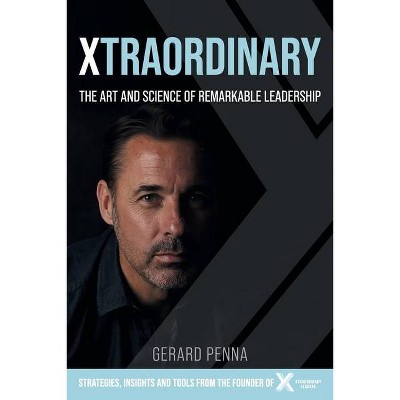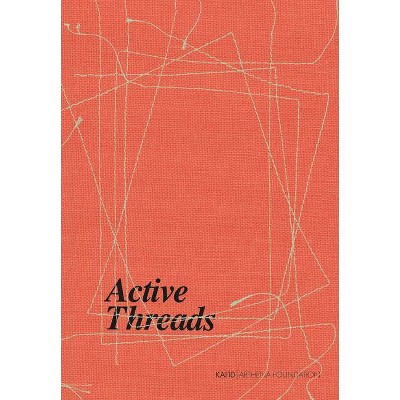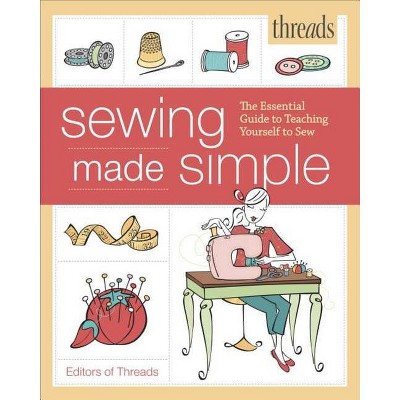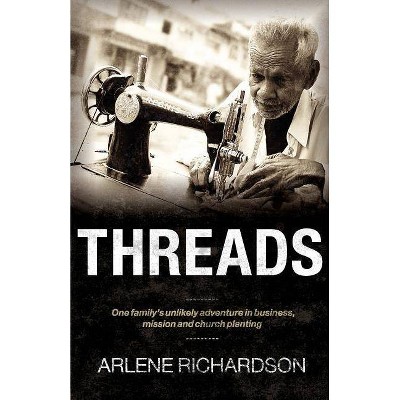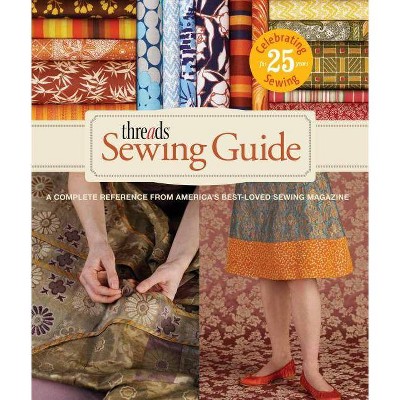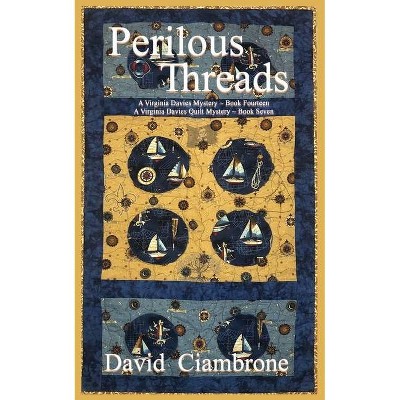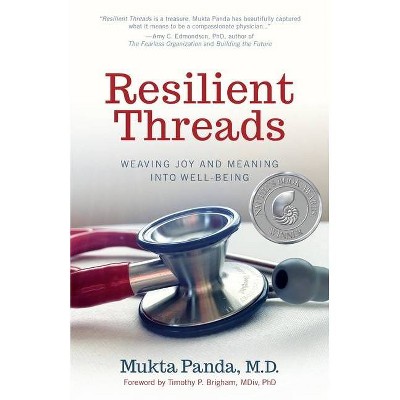Braided Threads - by Robert Penna (Paperback)
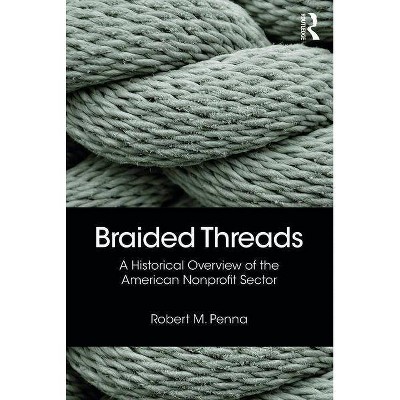
Similar Products
Products of same category from the store
AllProduct info
<p/><br></br><p><b> About the Book </b></p></br></br><p>The core message of the book is that the developmental trajectory of nonprofits has not been a straight line. Its path over the years might be compared to that of a pinball, moving straight and building up momentum but then ricocheting off some event or social trend and taking off in a new direction altogether. Equally important, however, the sector is also the product of a founding genome that came out of colonial, Puritan-inspired New England and spread as that culture and its values became one of the dominant forces in American society. Knowing this history is a prerequisite for understanding and appreciating the character of this deeply influential part of American social culture. </p><p/><br></br><p><b> Book Synopsis </b></p></br></br><p>The United States today supports the strongest, most varied nonprofit sector in the world, an economic force of about $2 trillion, responsible for 5.4% of the nation's Gross Domestic Product in 2014, and accounting that year for 10.3% of the country's private-sector workforce. Roughly three-quarters of all households in America give to charity, with the average total donation being $2,030 annually. Yet for all this, few Americans, and more specifically, a surprisingly small proportion of the sector's practitioners, know where the nonprofit sector came from, or how it developed and came to be what we know it as today. This work is a historical overview of that sector, presented less as a chronology than as a discussion of the major influences--some legal, some social, some political--that helped shape the arena.</p><p>The core message of the book is that the developmental trajectory of nonprofits has not been a straight line. Rather, its path over the years might be compared to that of a pinball, moving straight and building up momentum for a time, but then ricocheting off some event or social trend and taking off in a new direction altogether. Equally important, however, the sector is also the product of a founding genome that came out of colonial, Puritan-inspired New England and spread as that culture and its values became one of the dominant forces in American society. Knowing this history is a prerequisite for understanding and appreciating the character of this deeply influential part of American social culture. </p><p/><br></br><p><b> Review Quotes </b></p></br></br><br><p>Easy to read and follow, the strength of this work is in the historical context of philanthropy from a U.S. perspective. </p> <p>Michael Thatcher</p> <p>President & CEO, Charity Navigator</p> <p> </p><i> <p>Braided Threads</i> offers a tour through the history of America's charitable sector, giving texture to the story of social change as a way to understand this critical pillar of American society, helping us understand where we came from and where we are going. </p> <p> </p> <p>Jacob Harold</p> <p>President & CEO, GuideStar</p> <p> </p> <p>Dr. Penna offers a thoughtful, well-researched overview of the evolution of the nonprofit sector in America. A concise and detailed review of key developments in our sector's evolution over more than two centuries.</p> <p>Jed Emerson</p> <p>Senior Advisor, Gary Community Investment Company</p> <p>Originator, Blended Value Concept</p> <p>Senior Fellow with the Center for Social Investment, Heidelberg University</p> <p>Winner of the 2012 Nautilus Gold Book Award</p> <p>Twice selected by the NonProfit Times as one of the 50 Most Influential People in the Sector</p> <p> </p> <p>Robert Penna offers us the story of American philanthropy from its ancient roots to its current reality. By tracing key themes, he aptly presents the evolving nature of our philanthropic adventure. Penna has done the nonprofit sector a great service and made its understanding more accessible to the broader public. A great resource for those who study and work in our sector, as well as those in the general public curious about where it all came from.</p> <p>Barry Silverberg</p> <p>Director, Center for Nonprofit Studies, Austin Community College (CNS)</p> <p>Former President & CEO, Texas Association of Nonprofit Organizations (TANO)</p> <p> </p> <p>Dr. Penna's book, Braided Threads, provides us with a tremendous overview of the history of the U.S. nonprofit sector. The book is engaging, fascinating, and extremely well researched. It should be read by anyone working in -or planning to work in- the sector, as well as those donors who are supporting nonprofits. The book gives the reader great insights into the sector's origins and rich history, as well as what is likely to come next in the evolution of this complex and enormous arena. </p> <p>Ken Berger</p> <p>Executive Director of CTC Academy</p> <p>Former President & CEO of Charity Navigator</p> <p> </p> <p>Dr. Penna's <i>Braided Threads</i> is the most comprehensive explanation yet of the philanthropic, political, religious, and social influences that have impacted the development of the nonprofit sector in America. A must-read for anyone seeking to better understand the sector's roots and essential contributions to our nation.</p> <p>Stephen W. Rice</p> <p>Director of Government Affairs & Communications</p> <p>Independent Bankers Association of New York</p><i> <p> </p></i> <p>This book is an indispensable resource for anybody interested in working in, funding, improving, or designing appropriate public policies for the world of nonprofit organizations.</p> <p>David Hunter, Ph.D.</p> <p>Author, <i>Working Hard & Working Well</p></i> <p>Former Director of Assessment and Knowledge Development, Edna McConnell Clark Foundation</p><br><p/><br></br><p><b> About the Author </b></p></br></br><p><strong>Robert M. Penna</strong> is the author of <em>The Nonprofit Outcomes Toolbox</em>, as well as numerous articles that have appeared in such outlets as the <em>Stanford Social Innovations Review</em> and the<em> Huffington Post</em>. He served for five years as a consultant to Charity Navigator, and also as an outcomes consultant to the World Scout Bureau. He has presented before numerous nonprofit organizations and nonprofit associations across the U.S., and in Canada, Poland, Kenya, Saudi Arabia, and Australia.</p> <p></p> <p>A native of the Bronx, he was a staff member of the New York State Senate for thirteen years beginning in 1982, over that period holding several senior-level positions including Director of Research for the Legislative Commission on Public-Private Cooperation, and Director of Communications for the Senate Finance Committee. He graduated from Fordham University and holds a Ph.D. from Boston University. He lives in Wilmington, NC, with his wife Elise and their two dogs, Charlie and Kodie, and Chester and Henry, their cats.</p>
Price History
Cheapest price in the interval: 46.95 on October 27, 2021
Most expensive price in the interval: 46.95 on November 6, 2021
Price Archive shows prices from various stores, lets you see history and find the cheapest. There is no actual sale on the website. For all support, inquiry and suggestion messages communication@pricearchive.us
